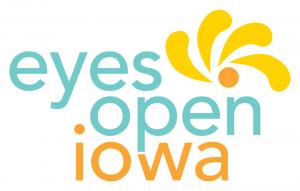Looking for expert trainings tailored to your needs? The offerings in the image below showcase our custom training services, designed to address the specific needs of your school or organization. From leading sexual health curriculums to creating inclusive learning spaces, our dedicated training team is here to ensure your goals are comprehensively met.
Our trainings are perfect for everyone, whether you're just getting interested in sex ed, a rookie educator with emerging skills, or a decorated veteran of the adolescent sexual health education field. Our sessions are relevant, engaging, well-researched, and consistently receive rave reviews. Our trainings are well aligned with the Professional Learning Standards for Sex Education (PLSSE), so trainees can rest assured they're getting the information their learners deserve.
Interested in in-person or virtual trainings that anyone can sign up for? Check out our trainihttps://www.eyesopeniowa.org/training-eventsng calendar to explore upcoming opportunities. Contact us today to start a conversation about how we can help your team thrive!




